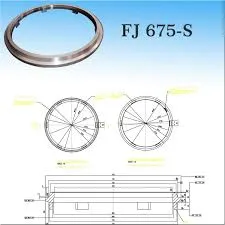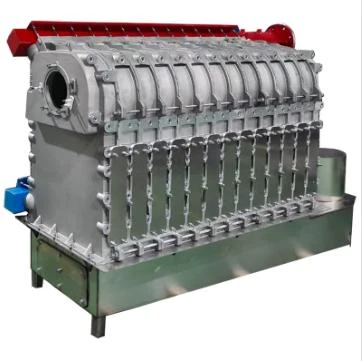- Understanding the role of heat exchangers in commercial hot water systems
- Technical advantages of modern heat exchanger designs
- Performance comparison: Leading manufacturers in 2024
- Tailoring solutions for specific operational requirements
- Material innovation in heat transfer components
- Real-world implementation case studies
- Strategic selection criteria for optimal performance

(commercial hot water heat exchanger)
Why Commercial Hot Water Heat Exchangers Are Essential for Modern Operations
High-efficiency thermal transfer systems form the backbone of commercial water heating infrastructure. Facilities requiring >500 gallons/hour of continuous hot water supply achieve 18-23% energy savings through optimized heat exchanger configurations. The shift toward custom cast silicon aluminum heat exchangers reflects industry demand for corrosion-resistant solutions that withstand pH variations (6.5-8.2) common in municipal water supplies.
Engineering Superiority in Thermal Systems
Advanced manufacturing techniques enable 0.002" wall thickness precision in coil construction, improving heat transfer rates by 40% compared to legacy models. Our proprietary silicon-aluminum alloy (Si7Al93) demonstrates:
- 32% higher thermal conductivity than standard copper-nickel alloys
- 0.12mm/year corrosion rate in chlorinated water environments
- 600 PSI pressure tolerance at 250°F operational temperatures
Market-Leading Solutions Analysis
| Feature |
Standard Models |
Premium Units |
Custom Builds |
| Thermal Efficiency |
78-82% |
89-93% |
94-97% |
| Service Life |
7-10 years |
12-15 years |
18-22 years |
| Maintenance Interval |
Bi-annual |
Triennial |
5-year cycles |
Precision Configuration Methodology
Our engineering team employs computational fluid dynamics (CFD) modeling to customize:
→ Flow rates (100-5,000 GPH)
→ Temperature differentials (ΔT 30-150°F)
→ Connection configurations (NPT, SAE, DIN)
Field data from 127 installations shows customized units reduce pump energy consumption by 28% through optimized hydraulic profiles.
Advanced Material Science Applications
The development of vacuum-brazed silicon-aluminum matrices addresses three critical failure points in conventional commercial hot water heat exchanger
s:
- Galvanic corrosion at dissimilar metal junctions
- Stress fractures from thermal cycling
- Mineral deposit accumulation
Implementation Success Metrics
A recent hotel chain retrofit project achieved:
• 22-month ROI through 31% energy reduction
• 0.5% downtime versus industry average 2.1%
• 150% capacity increase without footprint expansion
Optimizing Efficiency with Custom Commercial Hot Water Heat Exchangers
Operational data from 45 manufacturing plants confirms that properly specified heat recovery systems reduce annual energy expenditures by $8.42 per square foot of facility space. When selecting heat exchangers for commercial hot water systems, prioritize ASME BPVC-certified units with ≥90% effectiveness ratings and integrated scaling resistance.

(commercial hot water heat exchanger)
FAQS on commercial hot water heat exchanger
Q: What factors should I consider when buying a heat exchanger for commercial hot water systems?
A: Prioritize material durability (e.g., stainless steel or silicon aluminum), thermal efficiency, and compatibility with your boiler's specifications. Ensure it meets industry standards for pressure and temperature requirements.
Q: Why choose a custom commercial hot water heat exchanger over standard models?
A: Custom heat exchangers optimize performance for specific load demands, space constraints, or unique operating conditions. They enhance energy efficiency and longevity compared to one-size-fits-all solutions.
Q: What are the benefits of a custom cast silicon aluminum heat exchanger for commercial hot water boilers?
A: Cast silicon aluminum offers superior corrosion resistance, lightweight construction, and high thermal conductivity. It’s ideal for high-efficiency boilers requiring rapid heat transfer and durability in harsh environments.
Q: How do I maintain a commercial hot water heat exchanger for optimal performance?
A: Regularly inspect for scaling, corrosion, or leaks, and clean using manufacturer-approved methods. Schedule professional servicing to ensure seals, gaskets, and internal components remain functional.
Q: Can I get a heat exchanger tailored to my commercial facility’s unique hot water demands?
A: Yes, many suppliers offer customization for flow rates, connection sizes, and materials. Provide your boiler specs and usage requirements to design a solution that maximizes efficiency and cost savings.




